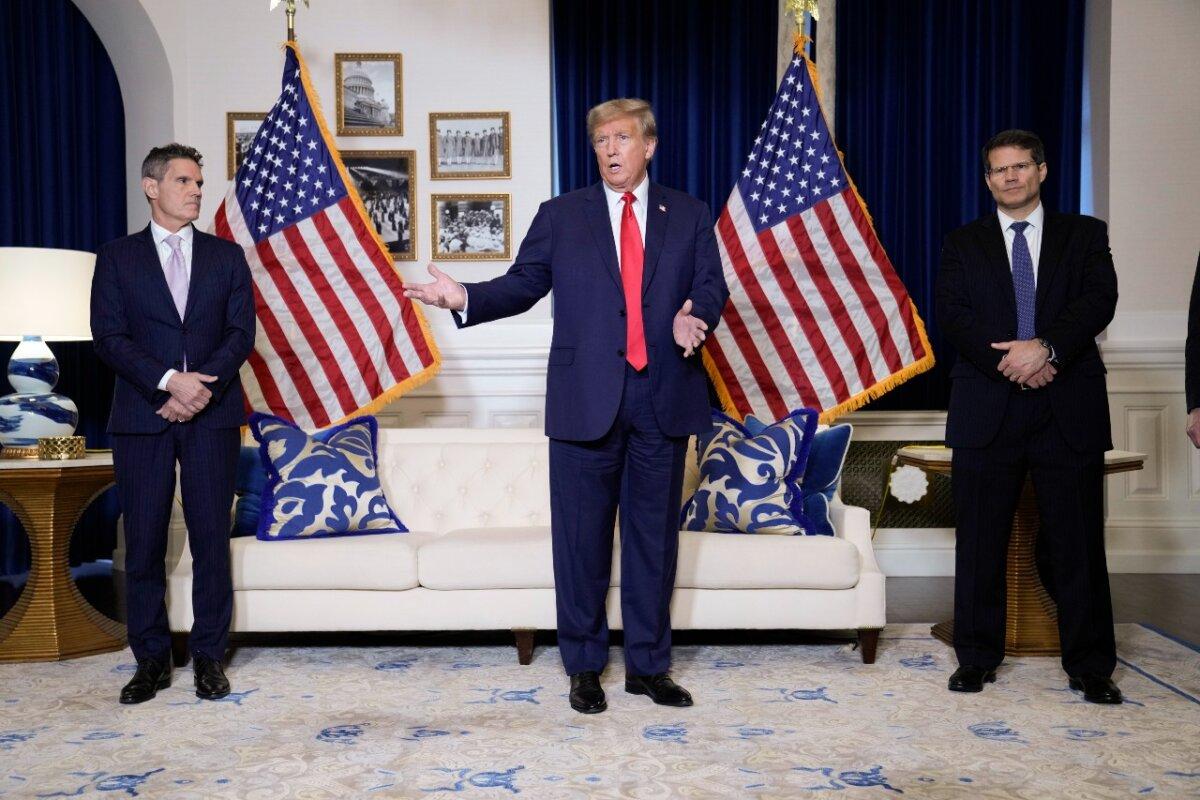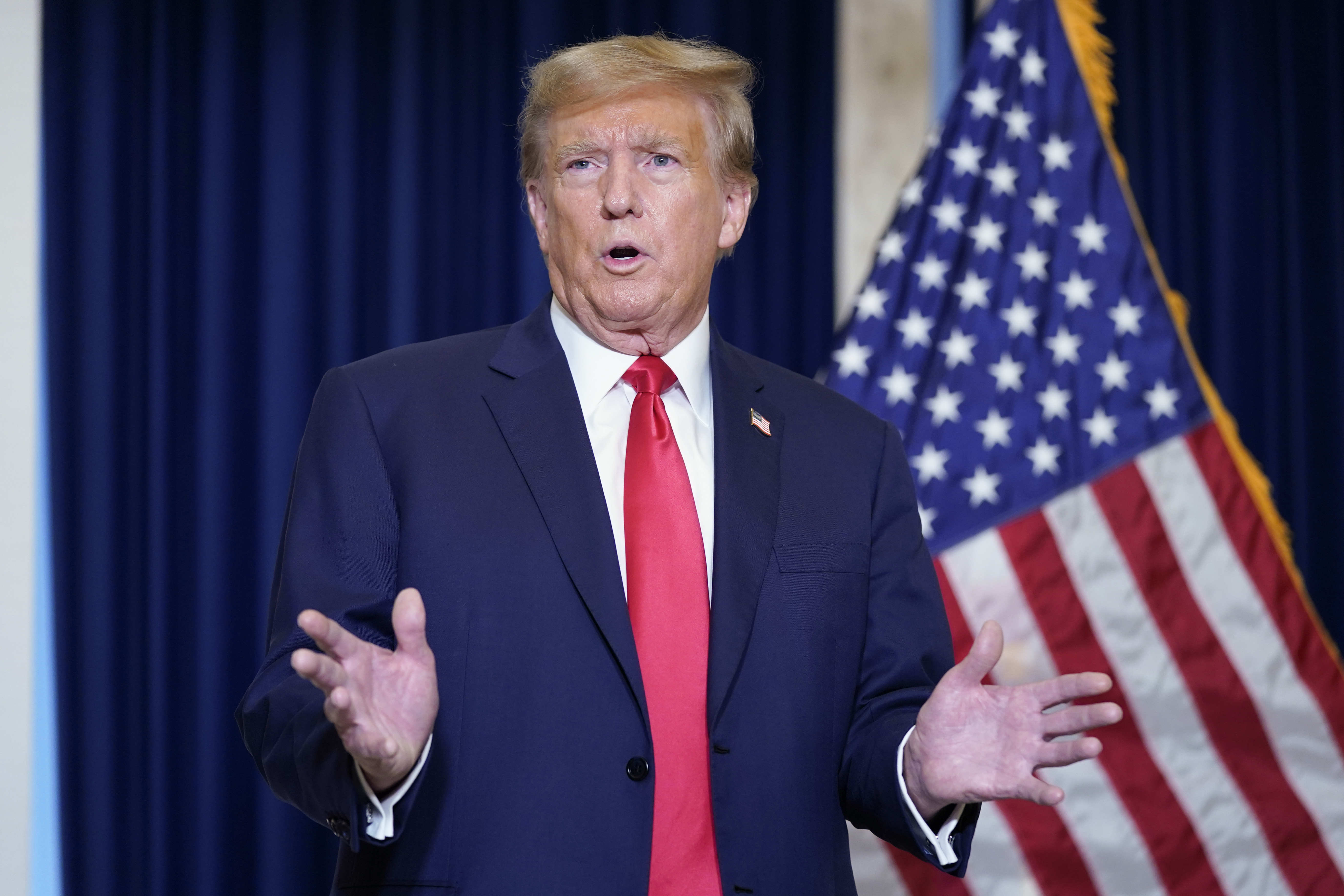

Former President Donald Trump speaks to the media at a Washington hotel, Tuesday, Jan. 9, 2024, after attending a hearing before the D.C. Circuit Court of Appeals at the federal courthouse in Washington, with attorneys John Lauro, left, and D. John Sauer, right. AP Photo/Susan Walsh
